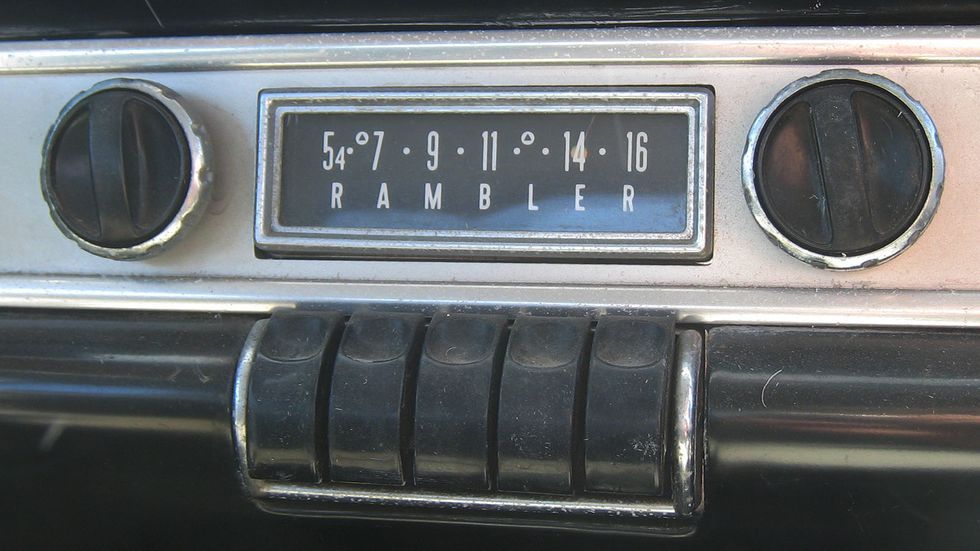Wandering the Desert
January 20, 2022
I live in a desert. Not the dry, arid land hostile to plant and animal life. But a news desert. These deserts are defined as rural or urban communities with limited access to credible and comprehensive news and information that feeds democracy at the grassroots level— and is usually a county with one or no newspapers.

Photo Credit: Pexels
We have one daily newspaper. The Pantagraph, a central Illinois institution since 1837. This 185-year-old publication, the oldest business in the area, is now more of a ghost newspaper. It exists and publishes, but there is little original or in-depth reporting. It was locally owned until 1980 when the Chronicle Publishing Company purchased it. Chronicle sold out to Pulitzer, Inc. in 1999, and then Lee Enterprises gobbled it all up in 2005. Lee still holds the keys.
The newspaper business has been in a downward spiral for years. Since 2005 about 2,200 local American newspapers have closed. Under Lee, through budget cuts and staff reductions, The Pantagraph has become a shadow of its former self. The editor oversees two other newspapers, one each in two neighboring counties. Several different positions, including management, photographers, and copy editors, cross over among them. The Pantagraph staff directory lists eleven reporters to cover a county of over 170,000 people. The intertwined towns of Bloomington and Normal encompass over 130,000 of that. The county is home to universities, colleges, a multitude of businesses, medical facilities, non-profits, the country’s largest insurance company, State Farm, and an assembly plant for EV’s golden child, Rivian. Three of the eleven reporters are dedicated to sports.
The paper’s content on any given day is largely produced using copy from wire services and other providers. You're more likely to find a chicken dish recipe and a bland entertainment piece repurposed from another publication than you are a story on our local government or businesses that goes beyond regurgitating press statements or parroting corporate message points. The editorial page is weak and consists primarily of repurposed columns from other publications. It is missing a solid voice focused on local issues. Compared to other news websites, the paper's online presence is the navigation equivalent of driving in a blinding snowstorm without headlights or windshield wipers. You may never find the news information you want, but there's no shortage of ads pounding against your screen.
The county is not entirely in the journalistic dark. Occasionally one of the television stations from Peoria stumbles through town, and the local for-profit radio stations cobble together some news. A local blogger tries to hold local government accountable through sometimes sharp reporting, but they so often overlay it with such a heavy dose of sarcasm and snark it weakens the impact. There is a shining star in the non-profit public radio station, WGLT. Through both their on-air and online stories, they deliver a top-quality product. But their efforts alone are not enough.
I recently read Carl Bernstein’s memoir, Chasing History: A Kid in the Newsroom. Bernstein waxes nostalgic about his early newspaper years in Washington, D.C., and his experiences at the local Washington Star. One of the Star reporters he heralds is David Broder, who eventually moved on to a long and successful career at the Washington Post. Broder spent some time in his formative years as a reporter for The Pantagraph. In a 1982 Washington Post column titled “What They Taught Us at the Pantagraph," he praised the paper for its coverage, high standards, and connection with the community.
I believe the paper's staff today is giving it their best effort. In a recent piece, the editor shared the paper's goals for 2022 as well as the reporters’ goals. They are community-focused and intent on delivering a quality product. They may be committed to The Pantagraph’s mission of watchdog journalism, but their bosses at Lee seem more interested in unleashing a Bichon Frise to patrol the news yard. Which doesn’t go unnoticed by those who should be held accountable but successfully dodge press scrutiny.
Late last year, the hedge fund Alton Global Capital offered to purchase Lee Enterprises. Alton has been described as “one of the most ruthless of the corporate strip-miners seemingly intent on destroying local journalism.” Lee rejected the offer and enacted a "poison pill" to prevent takeovers. Lee said Alton undervalued them and failed to recognize their strength “as the fastest-growing digital subscription platform in local media.” There was no mention of the quality of the news that rests on those platforms.
I’m not optimistic Alton won’t eventually bury their fangs into Lee and bleed them dry of whatever journalism is left in their publications. I'm even less hopeful the leaders at Lee will wake up one day and decide serious and credible journalism is worth more than clicks on a car dealership ad.
But I'm reasonably sure their shareholders will sip on soothing ice-cold water during quarterly calls and annual meetings while the rest of us, throats parched, crawl through the barren news desert they’ve stranded us in.
Like what you read?
Subscribe to my mailing list and get notifications to your inbox when my next blog post goes live.
Contact Us
More By Joe


